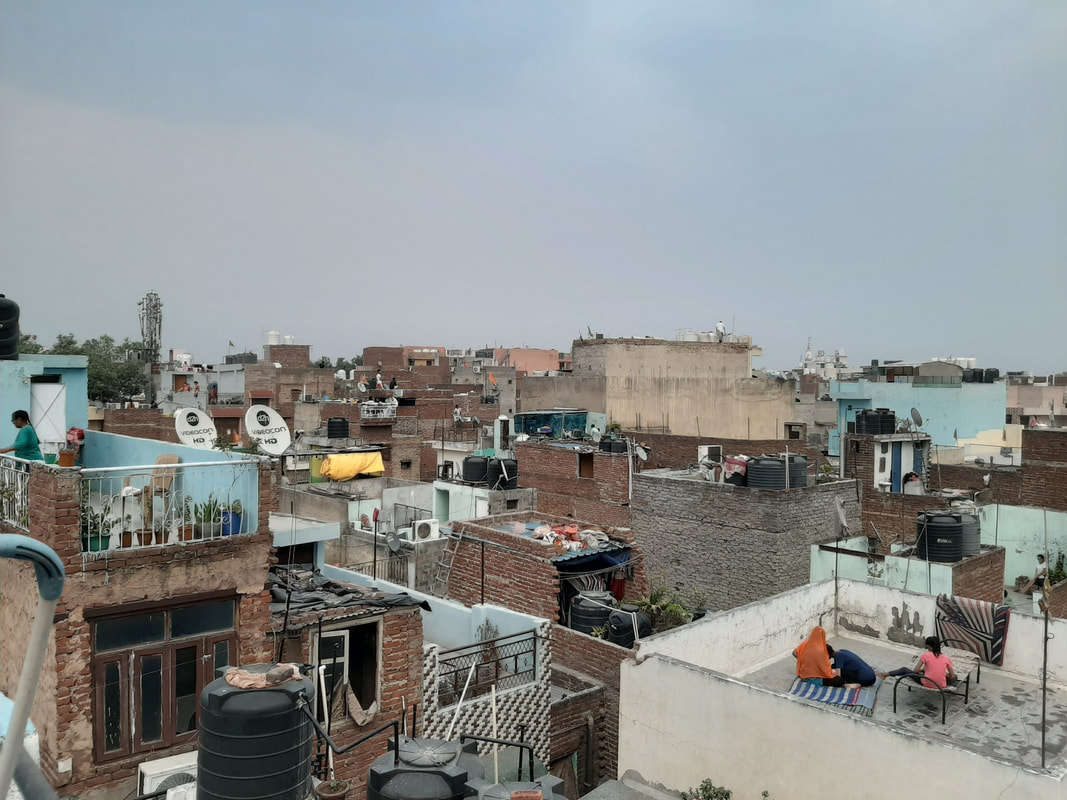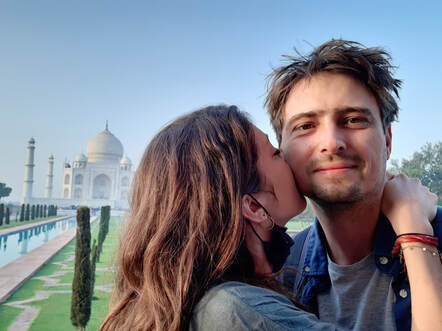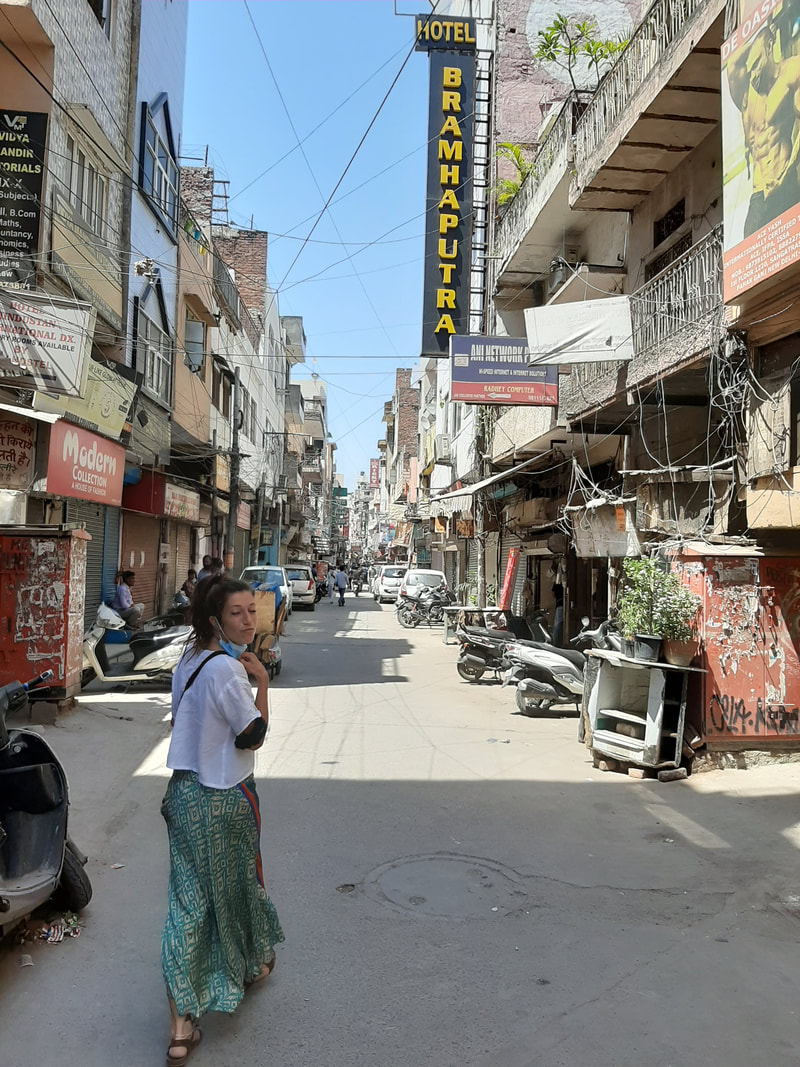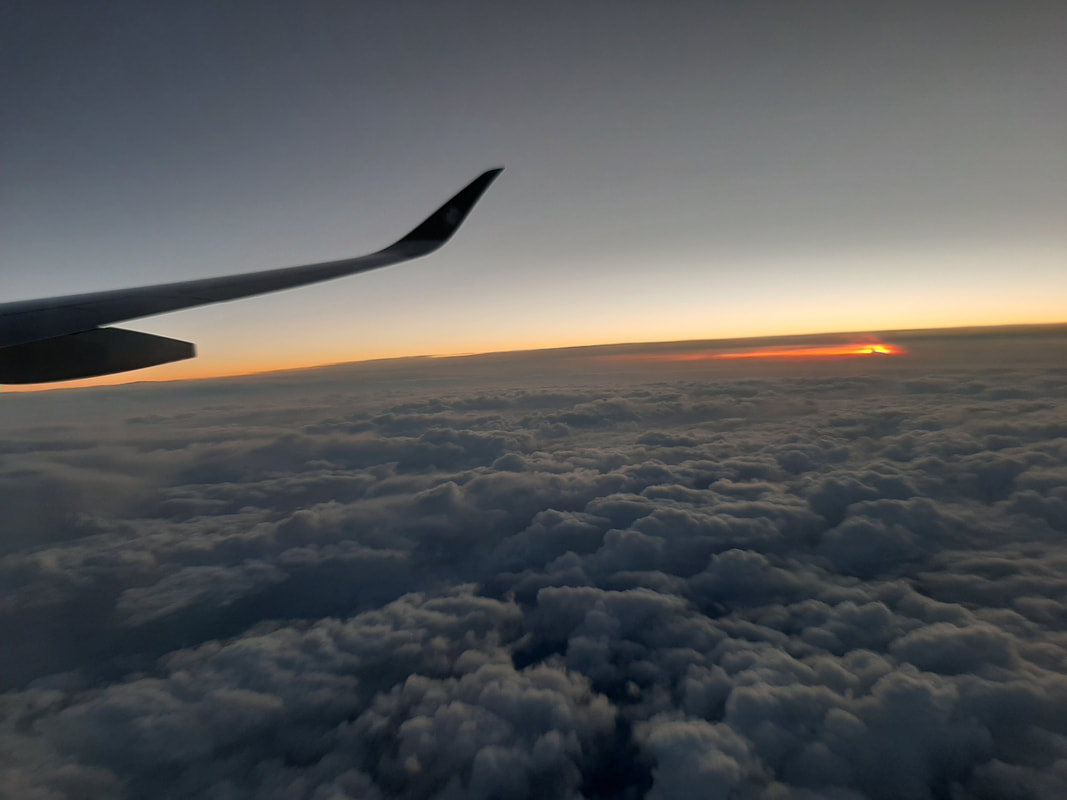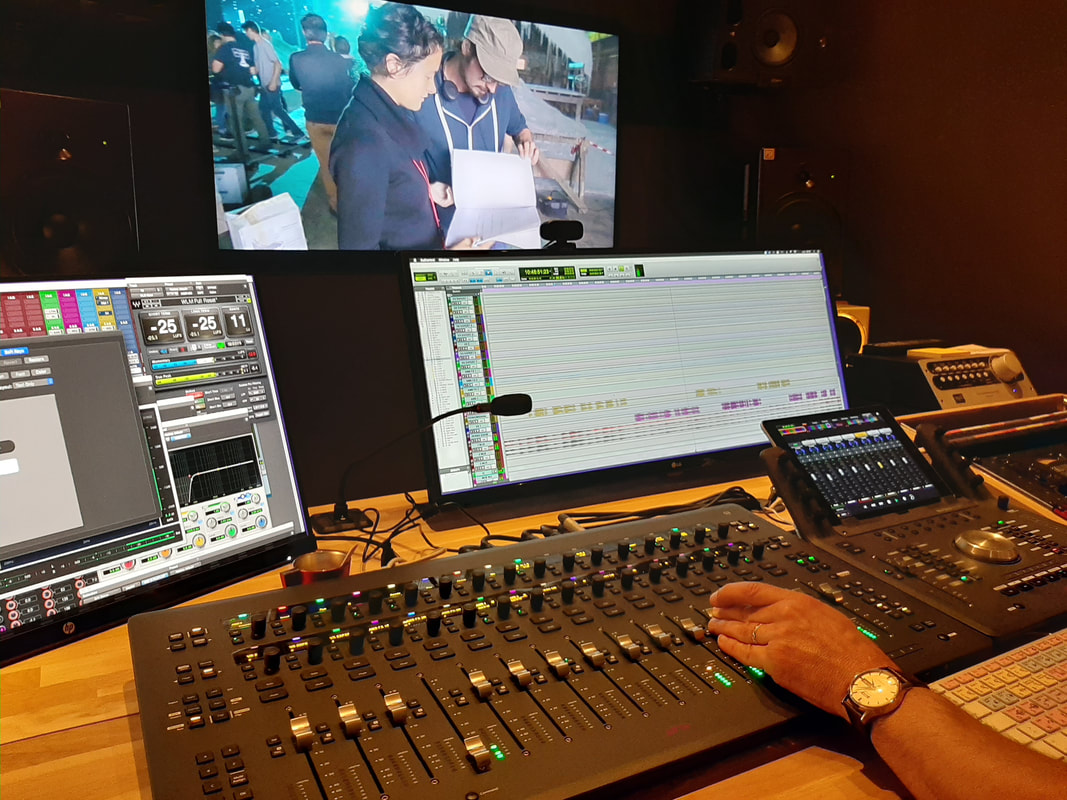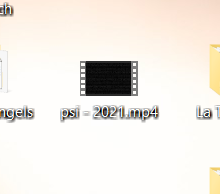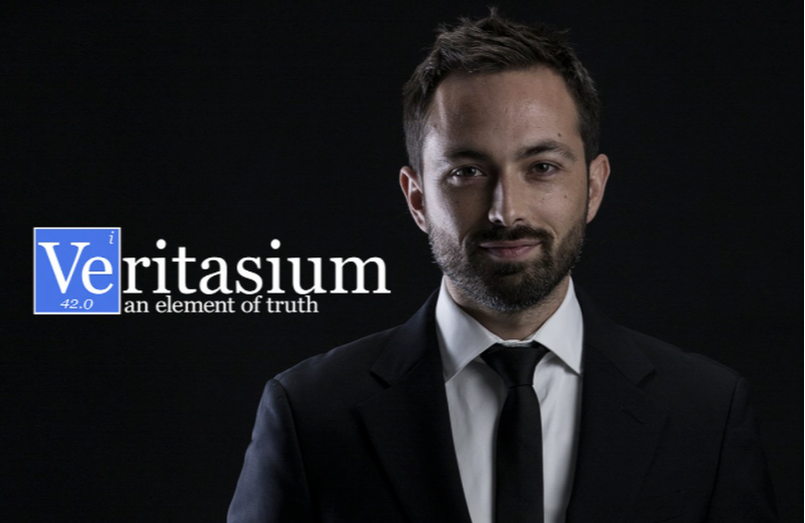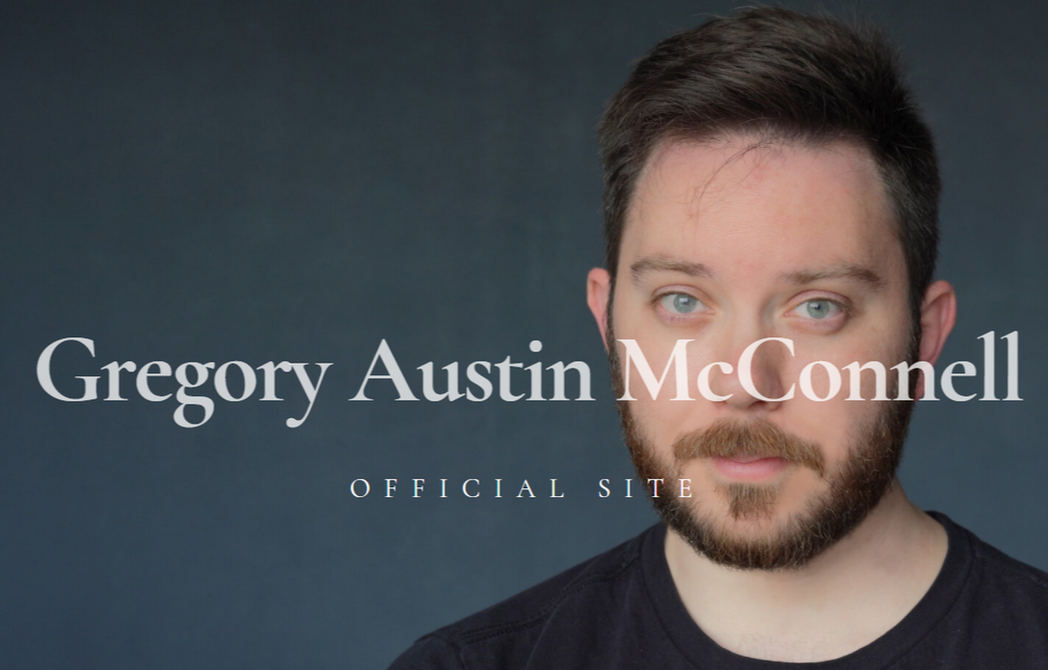Psi
Menu
VII - MAKE OR BREAK
|
Chapter 33
Good Enough Is Good Enough In January 2021, I dove right back into Premiere Pro and proceeded to re-edit the film with both Myriam’s narration and the news shots in Pornichet. I was finally ready to get it finished.
However, the first couple months of 2021 turned out to be unexpectedly busy for me, meaning I couldn’t progress on psi as quickly as I hoped. I mentioned before that I had a new girlfriend, Claire, who I met around the time of the first lockdown. We both dove into our relationship full pelt, building a very strong connection from the get-go, and by January 2021, we’d been together for almost 9 months, through lockdowns and curfews. We’d hardly been apart. Although she worked as a marketing researcher, just before we met, she wanted to take a gap year working abroad for an NGO. After various organizational setbacks due to Covid, she was finally hired and her assignment was confirmed: she was to start work in New Delhi, India, on March 1, helping underpivileged youth develop their professional skills. She was to remain there for the duration of the program, 13 months. While I was obviously excited for her, we were now facing a major fork in the road. What impact would this have on our relationship? Neither of us had any desire to end it, and I had no intention of talking her out of her plan. But because of Covid travel restrictions, Indian tourist visas were suspended, and the French government required having an exceptional reason to leave the country (needless to say, going to visit my girlfriend wasn’t on the list!). If she left, we'd be apart for an indefinite amount of time. And we didn't want that. We wanted to overcome the circumstances and stay on the same path at the fork. So, without much deliberation, we went for it: we decided to get married. It was a wild, scary, spontaneous decision, but also one which felt obvious and naturel. We had to take the leap, so we both jumped right in. It was, as Kane would say, “a bet on the future.” And a beautiful one at that. With only a few weeks to set it up, on February 22, at the town hall of the 18th arrondissement of Paris, we gathered a few friends under the strict Covid limitations (our families couldn’t be there) and tied the knot. It was a completely surreal moment. Thom, who’d been along with me on the psi journey from the beginning, was my best man. While I’d remained coy about my excitement during the preceding weeks, playing down the importance of the occasion given the circumstances, when seeing Claire for the first time in her wedding dress and hearing the Mayor say “you may now kiss the bride,” I must admit I felt elevated by the weight of tradition and the love of those around us. It did feel like a seminal moment in my life. Another life: married in Delhi
Less than a week later, Claire flew out to Delhi, and I joined her shortly after upon getting my spouse visa.
Claire’s NGO was based in Pahar Ganj, in the heart of the Indian capital. By the time we settled in, I still had some work to do on psi: in particular, some editing tweaks and reworking the overall sound mixing. The same applied to the 9-episode series, which I hadn’t looked at in almost 3 years. With the end now firmly in sight, I also proceeded to write the preceding chapters, covering the whole story since the MIT screening 3 years ago. Re-reading the whole journey thus far, I realized how truly unpredictable life is. If someone had told me a year ago that I’d be married and living in Delhi, I'd have laughed. And yet, here I was.
While in Delhi, I managed to finish the final edit and pre-mix of the film, as well as finalizing the edit of the 9 episodes of the interview series. It was there I discovered one final way to upgrade the quality of the film: de-noising. With the film being shot in natural light with the Canon 6D, once I had adjusted brightness, contrast and color correction, many shots revealed themselves to be extremely noisy (i.e. they had flickering, jagged pixels on the screen), especially in low-light settings or on large patches of single color gradients (such as blue skies). For some reason, until then, I had accepted that this would be one incompressible shortage of the film, as I assumed that cleaning it up digitally would either be A/ very expensive, B/ very time consuming, or C/ very ineffective. But as I approached the final edit, a little voice in my head kept pushing for one final verification: "Just go online and check for noise correction processes." And so I did, and I landed on a few articles and YouTube tutorials that blew the whole game wide open again. It actually WAS possible to clean up noisy footage quickly, cheaply and effectively. So after some research, I installed Red Giant's DeNoiser plugin, which is part of their Magic Bullet Suite. I played around with it for an afternoon, focusing on my most noisy footage, and honestly, I couldn't believe the results. Once the noise had been cleaned up, there was no going back, I couldn't live with how dirty my footage was before. While there is a slight loss of sharpness in some parts of fine-detail shots, the viewing experience became so much more pleasant, and the overall quality of the film improved. It actually felt like I had originally shot it with a better camera. So after discovering this tool, I spent a good 2 more weeks cleaning up the film, shot by shot, with the Denoiser tool. And it was time well spent. In May 2021, India suffered a record-breaking second wave of Covid that hit Delhi particularly hard. Claire’s NGO got shut down, compromising her mission. And despite doing our best to observe social distancing, wearing facemasks and cleaning our hands, Claire and I both got infected. For a full week, we had high fever, headaches, loss of smell and taste. The threat of having caught the so-called Indian variant was scary, but thankfully, we recovered quickly within a couple weeks. However, given the overall situation in Delhi, Claire chose to interrupt her mission, and at after less than 3 months, we headed back to France. The "Delhi" experience had been intense and short-lived. And upon returning to France, I had to hit the ground running with psi. After a mandatory 10-day confinement in Claire's hometown of Toulouse, I returned to Paris to finish the final mixing of the film. Julien Rochard, my sound engineer until then, wasn’t available at that time, so I called upon Studio MarcAurel, who were recommended to me. We spent a full day in their sound mixing booth and cleaned up the pre-mix I'd prepared in India.
The final export
And then, on July 1st, Marc sent me the master track of the film. I imported it into Premiere Pro, placed it in the timeline under the final edit of psi and hit Export for the millionth and, hopefully, last time.
And there it was, on my laptop, the film. I’m now switching to the present tense, as writing this has finally caught up with the present moment. It's the end of July 2021. I'm currently sitting in Pornichet, at my mother's house, with Claire.
I just spent the last month getting everything ready to finally release the project, which meant:
Looking back...
Anyways, back to psi. As I'm writing this, the film, the episodes and the book are currently online and private on password protected pages. The whole thing is ready to go.
Now, before considering what that even means - i.e. ready to go where? - just reaching this stage - having it all finished and online - gives me a huge sense of relief. I can finally say to myself: “It’s done. No more re-working it.” All the files are exported, backed-up and now uploaded online. I can now stop stressing about losing my laptop or my hard drives. I'm still typing on the same Dell Inspiron I started with 7 years ago, although it did need to undergo a hard-drive-transplant a few years back and it has lost some keyboard keys. Over the past years, I've been genuinely terrified of losing everything in a robbery or a fire. I routinely tasked friends with keeping backups, but even they didn’t have the latest developments. Now, even if all my hard drives get destroyed at the same time, all my work is safely uploaded. Completing the project is also a relief for another reason: throughout the past three or four years, people around me started to suspected that, on some unconscious level, I wasn't able to finish the film because I didn’t fundamentally want to face life without it, like an insecure parent clinging to a child. Whenever people asked me when the film was done (many eventually gave up asking) and I mentioned there was one last step I had to complete - be it re-recording the narrator's voice, or re-shooting some scenes, or cleaning up the noisy footage - I could sense their eyes rolling. I knew I was wearing out their patience, their interest and possibly their faith in me. And I could understand why: they felt that the mere process of perfecting the project was like a drug, and that I was just too afraid to eventually put it out there and face the music. But this never rang true to me. I really, deeply wanted to complete the project and release it to the world. I just didn’t want to do so until I’d done everything in my power to do it right. This leads me to reflect on one major pitfall I really fell into: perfectionism. Especially in the last 3 years, during which I relentlessly tried to reach a famous actress to voice the narration, pursuing some ideal vision I had for my film to the point of halting the whole momentum I had going beforehand. I was unwilling to compromise, or be realistic, or even just content with the perhaps less spectacular but more attainable and equally interesting alternatives. In doing so, I ground myself to a standstill, and it worked like quicksand. The more I refused to move forward unless I got what I wanted, the more I sunk in. And the more I kicked and screamed to make it happen, the deeper I got trapped. Eventually, I had to relax and let it go to wiggle free and get back up again. What helped me to do this was realizing - and accepting - that this film is, fundamentally, NOT perfect. On so many levels. Image-wise, it’s not up to standard anymore, as it's all in 1080p, with some shots even in 720p; the camera work is often wonky, sometimes underexposed, improperly balanced and poorly framed; the color correction isn’t as good as it could be; the sound of recorded voices is often poor quality; and even narratively, the pacing of the film is challenging, with a middle section where many people lose interest. It was never going to be as good as I envisaged it to be, no matter how much tweaking I did in post. And it took me a while to really see this. There's a difference between knowing in the back of your mind that your shots aren't perfect but pretending that they are, and actually doing a freeze frame, looking at it and going: wow, half my face is out of frame. And I’m now okay with all this now. All these shortcomings are things I cherish, as they are what give the film its identity, and therefore its character. And so to with life, in general. I’ve noticed that making this film has changed my perspective on my own decision-making and satisfaction. As though this process, over the years, had served as a kind of therapy, helping me manage my own fears and expectations. Indeed, before this whole adventure (and this may be the main reason why I started it in the first place), I often felt in conflict with how things played out in my life, annoyed at past decisions and frustrated with how luck or contingencies intervened. I didn't like this feeling of not being in control of my life, this sense of injustice when effort isn't equally rewarded - and because I was myself a hugely privileged person, the simple fact I was sometimes dissatisfied with my life was itself a source of conflict, as I found myself torn between my subjective sense of entitlement ("I should be allowed to complain") and my objective assessment of reality ("Most people would trade their problems for mine.") At the core, though, was a deep-seeded concern for my own sense of agency: while I often felt subject to causes or events beyond my control, I then still questioned why I did this or didn't do that. And whenever I expressed my regret or dissatisfaction with a particular turn of events, people often confronted me with a saying that just irked me even more: “You can’t change what you can’t change.” This motto clashed directly with my obsession about control and agency. I'd find myself indefinitely fighting back: “No but you can change things… If I had done that differently, I could have gotten this or avoided that…”. It was a losing battle. Now, weirdly, I get it. I spend far less time dwelling on my past decisions of fretting over future ones. I started to notice this change in my own dispositions when reviewing my conversation with Galen Strawson. During the interview back in 2016, I remembered being amazed, and frankly a little bewildered, how often he claimed that he doesn’t think about his past, that he’s just forward-looking and that when he does face an important decision, he doesn't reflect on it too much - he "just makes jumps." At the time, I felt completely at odds with his view of life and of himself. And yet when listening to him now, I relate to it a lot more. The quality of one's present experience doesn't have to be indexed on the actuality of past experiences or the potentiality of future ones. It is, after all, Strawson who, in his self-proclaimed hippie, Buddhist way, said: "There is a model of a good life: live in the present." ... to look forward
So, returning to the present, I do, ironically, have one big future-oriented question that I need to address: What is going to become of psi now? What am I going to do with the film, the series and the book? What should I do?
My instant urge is to release everything online for free. I've been withholding it from sight for too many years and I don't want to fall back into the trap of pursuing higher goals that never materialize. One of these "big goals" would be trying to secure some form of distribution. I could send the film to Netflix, Amazon, Hulu. This, of course, is supposing they'd even be interested in putting psi in their catalogue. At the time of writing this, I have a few "friends of friends" who can put in a word with people working in some of these companies, so I'll send out some feelers and see what happens. I'd also like to send the film to festivals, especially in the five cities of the film: Jerusalem, London, Los Angeles, Helsinki, and, of course, Paris. It would be a great and fitting achievement to get the film screened there. But again, many film festivals only screen films that are exclusive, in the sense that they aren't viewable elsewhere. This would require that I don't upload the film to the Internet for all to see. And again, I don't know if I have the patience and self-restraint to do this - at least not for very long. Whether the film ends up on a commercial platform, or being screened at festivals, I don't know yet. For the time being, I've settled on what I want to do: I want to release the Talks episodes and Making-Of, online, for free by mid-September 2021. As for the film, I'll send it to some festivals and see what happens in the first few months. I'll also try to get the word of mouth going - I have a few friends who are journalists, and hopefully they can help out. It's hard promoting yourself to the media when you don't have a PR person - it may even be counterproductive. As I reach the end of a cycle in writing this blog (or journal, or book, I never quite knew how to call it), I just caught myself wondering: is anybody actually going to read this? Are you reading this right now? Has anyone made it this far? At first, if I imagine you here, my initial urge is to thank you. I realize this whole Making-Of blog may seem like a terribly self-centered and perhaps at times self-indulgent exposé. Come to think of it, this whole project is, in a way. But, nevertheless, I do genuinely hope that it provides some entertainment and useful insights for others. For now, I think it's time I really follow one of the main lessons of psi, hammered home by Barry Schwartz: "Good enough is almost always good enough." So, here's goes... <----------- Previous Chapter: Re-Shoots & Re-Edits
|
[email protected]
© COPYRIGHT 2022. ALL RIGHTS RESERVED.
© COPYRIGHT 2022. ALL RIGHTS RESERVED.
